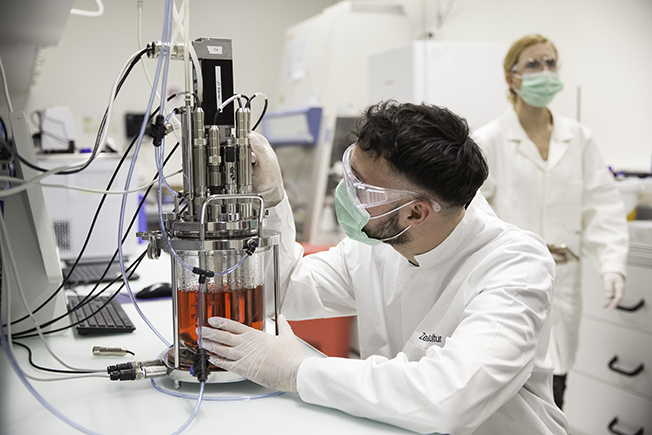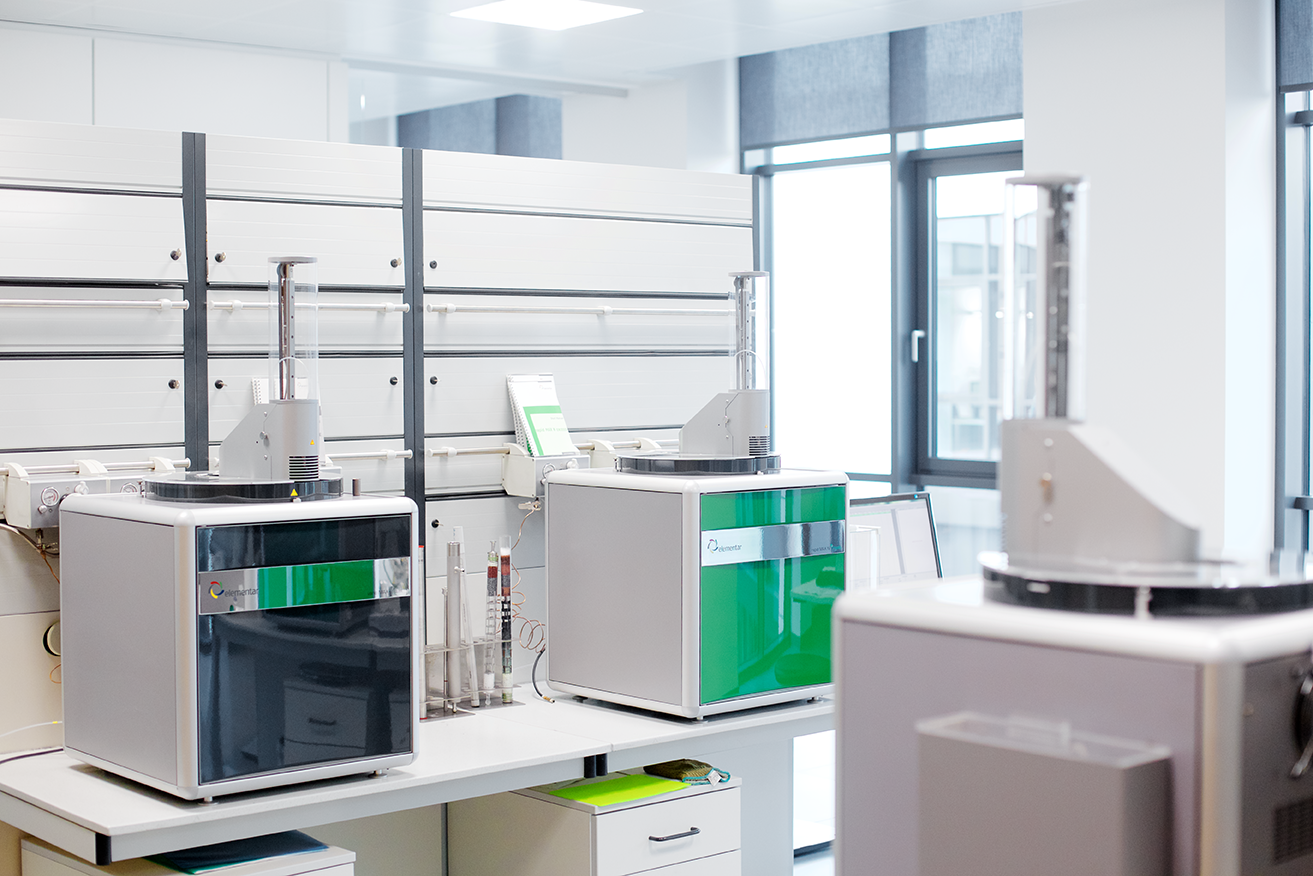

Meeting demand with sustainable and nutritious plant-based proteins
Brian Nash, Vice President, Corporate Sustainability at Ingredion, explains what it takes to help customers formulate sustainable, healthy and nutritious plant-based products that meet consumer demand

Today’s consumers know more about sustainability than ever before. And so they should. Foods and beverages impact their health and our planet alike. And for this reason, consumers have a strong idea around what ingredients they want in the F&B products they consume.
Encouraged by the pandemic, climate change and other global events, consumers are increasingly focused on the inputs and impacts of the products they buy. So much so that one in two globally have made dietary changes in the past two years to lead a more sustainable lifestyle.
‘Better for me’ and ‘Better for my planet’: consumers want it all
Consumers globally are also particular around the kind of sustainable products they want. About half look for products labeled ‘plant-based’ while three quarters of European consumers believe manufacturers should reduce emissions in food production. It’s imperative manufacturers are able to meet consumer demands around sustainability. But how?
High-quality plant-based proteins deliver significantly less impact on the environment. It’s also worth noting that pulses have a low carbon footprint so need less nitrogen fertilizers, hence reduce greenhouse gases and water pollution. Pulses naturally sequester atmospheric nitrogen into the soil, so help reduce a potent greenhouse gas.
85% of global consumers say information on what is in their food – and how it impacts the world – is of major importance to them
Reducing manufacturers’ environmental impacts with plant-based proteins is a highly likely way to deliver a better planet for today’s consumers. Ingredion’s stated purpose is to ‘Make Life Better’ through sustainability by bringing the potential of nature and technology together to create ingredient solutions that make life better.
Achieving sustainability goals is no easy feat though. There are various challenges around launching sustainable, plant-based products, and methods and technologies associated with addressing these challenges.
Challenge #1: building trust and growing sales
Generally speaking, consumers prefer to buy from brands that support their specific beliefs, communities and lifestyle choices, including those involved in environmental sustainability. Investing in and promoting ESG initiatives can help build trust that grows sales. In fact, 92% of Millennials reported they would be more likely to trust a company that supports social or environmental issues.
When it comes to manufacturers, they also want transparency, and to be aware of their supplier’s own sustainability credentials and initiatives. At Ingredion, the company’s ‘All Life’ sustainability plan (launched in 2020) is its own 2030 sustainability strategy, which tracks progress across a variety of sustainability metrics as it works toward achieving its purpose of bringing together the potential of people, nature and technology.

Challenge #2: understanding the environmental benefits of plant-based proteins
‘How can sustainable plant proteins help meet sustainability goals and consumer demands?’ is a common question that Ingredion has to answer. Plant-based proteins are more sustainable across multiple metrics, making it easier for brands to tell a strong sustainability story. For example, it takes four to seven times less energy to produce 1kg of pulse proteins than 1kg of animal proteins.
Pulses are also some of the most water-efficient foods, requiring only 195 liters/lb versus 8,524/lb of beef. Understanding water efficiency is key in understanding the environmental benefits of plant-based proteins.
At Ingredion, pulse-based flours and protein concentrates are produced from its manufacturing facility in Vanscoy, Saskatchewan, Canada, which uses dry-milling technology. The isolates produced there deliver a magnitude of environmental benefits including a lower carbon footprint than its wet-milled protein concentrates.
Ingredion actually has customers who prefer the protein isolates produced in Vanscoy as a result of the zero wastewater discharge from dry milling, despite protein isolates having a lower protein concentration. This further shows how vital sustainability is to manufacturers.
Challenge #3: balancing corporate goals with consumer demands
Growing sales and meeting sustainability goals are key facets of sustainable product development, and these goals must be aligned with meeting consumer demand.
To achieve this balance, brands must deliver in three areas: consumer well-being; environmental impact; and value creation. By delivering on consumer well-being – with high-quality and nutritious products – and delivering sustainable ingredients while managing costs holistically, brands can balance corporate goals with consumer demands.
Ingredion’s ‘360 Value’ platform takes a holistic, total-value approach, which considers every aspect of new product development from process improvement and ingredient replacement to carbon footprint and food security.
Challenge #4: finding a partner that can do it all
Formulating for sustainability is rarely just about a single attribute, meaning creating a sustainable formulation is complex. Manufacturers want to reduce their carbon footprint but they also want to make certain products ethically sourced, and/or ‘non-GMO’ or ‘organic.’ Ingredion finds there is often an additional ‘and’ associated with sustainability.
At Ingredion, the goal is to ‘Own the and’ by helping manufacturers deliver products that meet consumer demand for sustainability and other areas of demand, such as organic, while accelerating innovation and delivering on taste and texture.
Own the ‘and’ with Ingredion’s plant-based proteins
VITESSENCE Prista is Ingredion’s latest range of pea and fava bean protein concentrates, designed to help new product developers build the right taste, texture and nutritional profile while also delivering on sustainability demands. They are manufactured via a proprietary de-flavoring process, and the ingredients reduce the bitter taste and raw plant flavor associated with conventional dry-milled pulse ingredients. Ingredion’s dry-milling process is one that does not use chemicals or additives while consuming much less water (0.2%) and energy (5.5%) compared with traditional pea protein production, according to its own proprietary data.
Perfect for use in multiple applications, including plant-based cheese, healthy snacks, ready-to-drink beverages, and meal replacements as a cost-effective nutrition source, the range delivers pristine taste and functionality. It also supports ‘protein,’ ‘plant-based’ and ‘gluten-free’ claims.

Collaborating for healthier people and a healthier planet
To further deliver exciting products such as VITESSENCE Prista, Ingredion has recently announced a partnership with HowGood, a SaaS data platform with the world’s largest database on food and personal care product sustainability.
The partnership will enable the delivery of data transparency on Ingredion’s top products and new product innovations which, along with its sustainability goals – such as having 99% of its global supply of crops sustainably sourced by 2025 – will provide customers with sustainable solutions that consumers prefer.
In addition, the environmental and human impact of 50 Ingredion strategic growth platform ingredients will be made available to the industry via HowGood’s ‘score card’ tool, which measures eight sustainability attributes using globally accepted measurement methodologies: greenhouse gas emissions; processing; water usage; soil health; working conditions; labor risk exposure; biodiversity; and animal welfare.
Ingredion is also working with HowGood to see how its data platform can help the company measure against its goal of aligning new products with the United Nations’ Sustainable Development Goals, to drive the sustainable innovation that manufacturers and consumers want, and that the planet and society needs.
Meet the desire for sustainability with plant-based proteins
The consumer desire for more sustainable products is plain to see. In general, consumers want to eat healthier and be mindful of their nutrition while trying to reduce their impact on the planet. Ingredion and the customers it supplies have an obligation to help meet those demands while delivering products that provide a high-quality eating experience.
Through its expertise in innovation, understanding of the complexity of sustainability, and its dry-milling technology and processes, Ingredion helps customers formulate sustainable, healthy and nutritious plant-based products that meet consumer demand.
• To learn more about Ingredion’s plant-based expertise, including the VITESSENCE Prista range, or to discuss Ingredion’s sustainability work and ‘All Life’ sustainability plan, please email ingredionpress@steinias.com
For more information about Ingredion's products, please click here
If you have any questions or would like to get in touch with us, please email info@futureofproteinproduction.com


%20ILVO%202.jpg)

.png)

